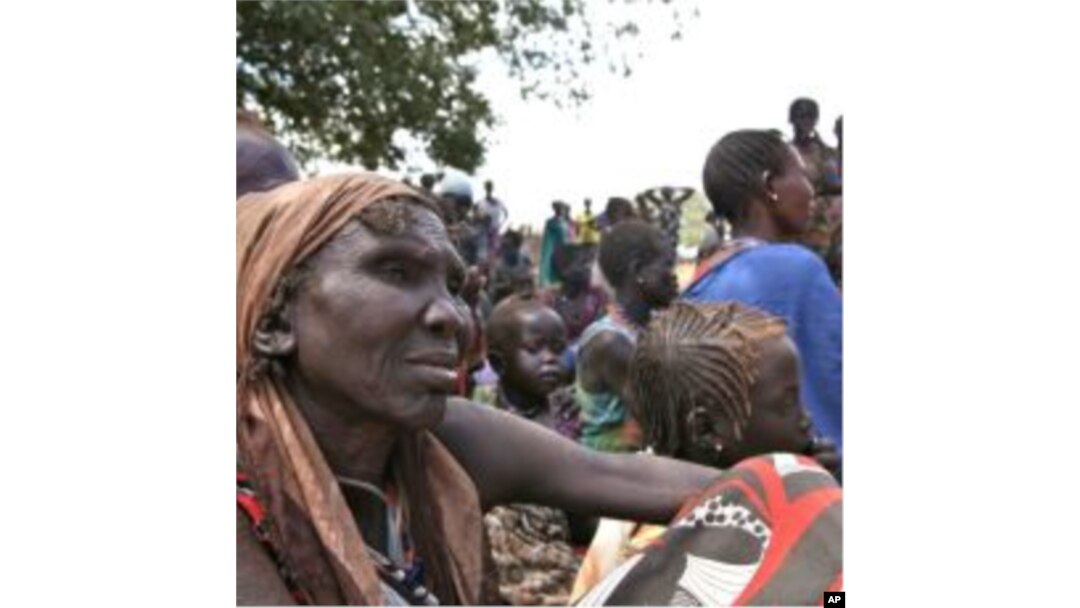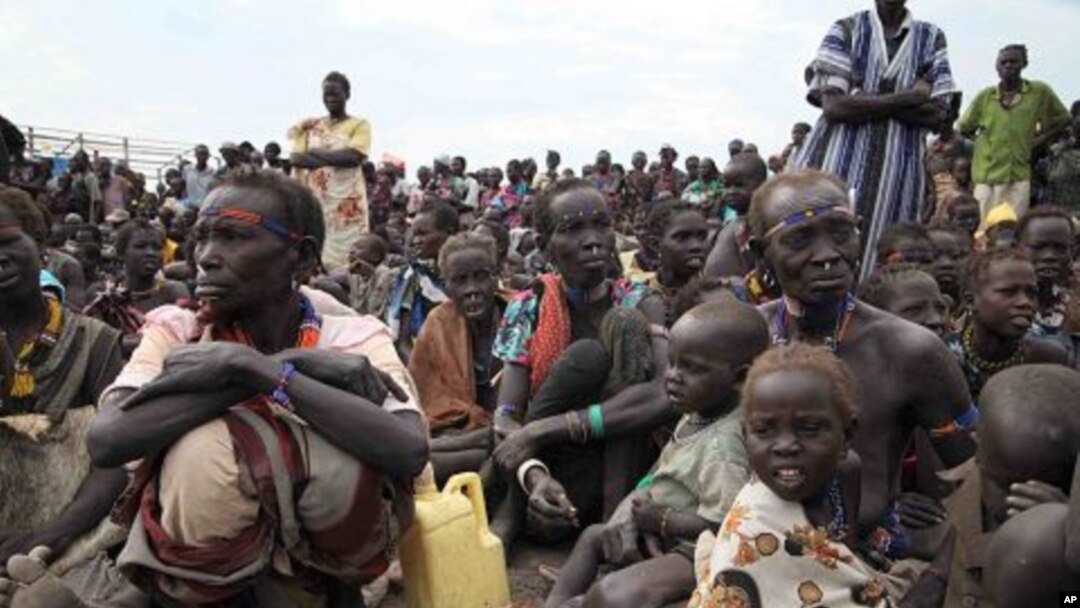Tribal violence in South Sudan’s Jonglei state recently reached alarming levels with thousands of armed young men involved in attacks on villages. The death toll has yet to be determined, but the United Nations says tens of thousands of people in Pibor County were forced to flee attackers.
In Pibor town, hundreds of displaced people gather in the midday sun, waiting for U.N. aid workers to distribute grain and cooking oil brought in by helicopter.
For many like Labakal Kalahin, whose daughter was killed by attackers firing on the family as they fled into the bush, this will be her first meal in seven days.
Kalahin says other family members have headed home to assess the damage, but she is staying with her children.
“We are staying here for security, to be safe," she explains. "I need food. I need bed sheets for covering. I need furniture, because everything has been thrown away by running away from the enemy."
New enemy
Before South Sudan gained independence in July, the enemy was Sudan, which the south fought for decades. Now, two South Sudanese communities - the Lou Nuer and Murle tribes - are pitted against each other in a series of brutal attacks on each other's villages.
The two tribes have fought for decades, mainly over cattle, but the fighting reached a new intensity earlier this month, when thousands of youths from the Lou Nuer marched on Pibor town, burning Murle homes and forcing an estimated 60,000 people to flee. Several smaller revenge attacks last week left about 100 people dead.
A clinic owned by one of the few aid agencies working in Pibor, Doctors Without Borders, was looted in the attacks and about 80 local staff members are unaccounted for.
World Food Program South Sudan Country Director Chris Nikoi says the usual infrastructure challenges are hampering efforts to help tens of thousands of people thought to be scattered in the bush.
“There is a dearth of roads in South Sudan," said Nikoi. "It is almost impossible to move large quantities of food by road. So we are having to respond quickly by air. So the critical challenge is having appropriate helicopters, airplanes that can help us meet this need very quickly. Of course, that goes with the fact that we would also need some money.”

People wait at the food distribution center set up by the World Food Program in Gumuruk, 40 kilometers from Pibor, South Sudan, January 17, 2012.
Food distribution
In Gumuruk, 40 kilometers from Pibor, the World Food Program has set up food distribution for 4,500 people.
Leaning against a stick and carrying a round stool to sit on, Koko Nareh Alan says he is here for food after losing 500 head of cattle in a deadly raid on his village nearby.
“They have taken cows, and abducted some women and children. They killed many people," said Alan. "They were shooting people, and if they get old men like me they were slaughtering.”
The elderly Alan says he does not know what to do after losing his fortune in a country where cattle are highly prized and represent a pension, dowry and insurance rolled into one.
In South Sudan, about 80 percent of the population relies on raising cattle and subsistence farming for a living. With whole villages burned to the ground and the fear of more attacks, people face a tough task trying to recover their livelihoods and loved ones.
The army hopes to create a buffer zone between the two tribes and carry out statewide disarmament in a bid to contain the violence. But church-led peace talks to end tribal disputes collapsed in December.


